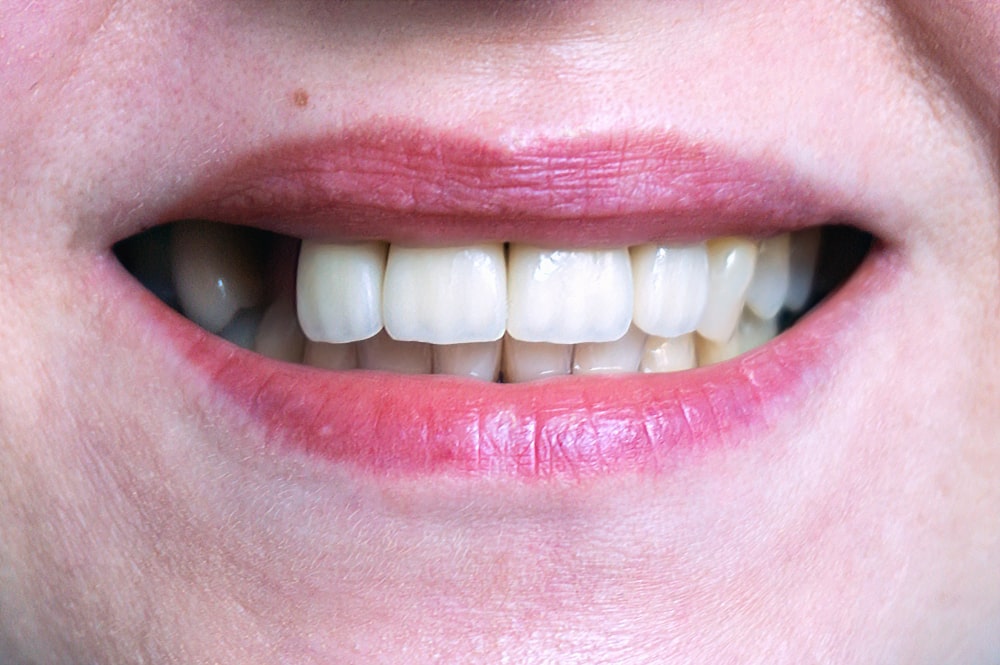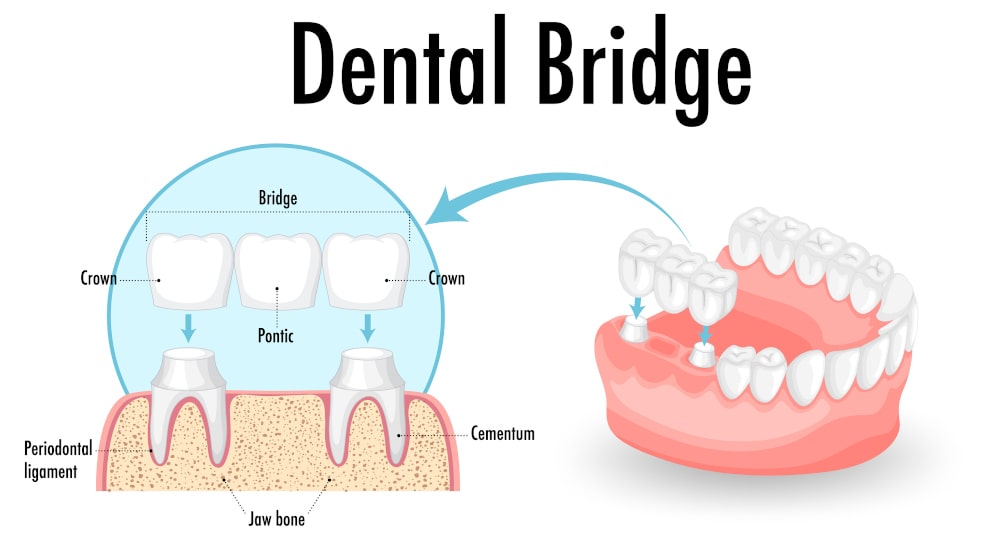
You might consider the worst outcome of losing a tooth to be a gap in your smile. But a lost tooth can cause major long-term problems affecting your general health and dental condition. Whether the missing tooth results from damage, decay, or another reason, untreated missing teeth can set off a chain reaction of issues from shifting teeth to bone loss and even psychological repercussions. We shall discuss in this post the effects of postponing treatment and what occurs should a missing tooth not be replaced.
Shifting of Surrounding Teeth
Teeth support and arrange themselves depending on one another. One lost tooth causes the neighboring teeth to migrate toward the vacant space since they lack the stability required. Several problems can result from this movement.
- The Domino Impact: A lost tooth leaves a void that neighboring teeth start to fill. This mismatch influences your bite's whole balance as well as the immediate area. This can lead to spacing problems in other areas of your mouth and over eventually cause problems with the fit of your teeth.
- Shifting's effects: Because they are more difficult to properly clean, misaligned teeth raise a risk of gum disease and decay. Apart from that, the shifting can cause issues with your bite, which will make chewing meals more difficult and strain your remaining teeth. When eating or speaking, this might also provide pain or discomfort.
Bone Loss and Jaw Deterioration
Bone loss in the jaw is among the most severe results of untreated missing teeth. Teeth give the jawbone necessary stimulation, therefore maintaining its strength and integrity. One loses this stimulus along with a tooth loss.
- How Missing Teeth Cause Bone Loss? Chewing forces the roots of your teeth to press on the jawbone, therefore promoting powerful and regenerative action. But if untreated, a lost tooth causes the surrounding bone to lose the stimulation it requires. The bone thus starts to degrade with time.
- Bone loss weakens the jaw, which can result in more tooth loss. It also influences the way your face is structured, leading to alterations including sunken cheeks and an early aged look. Replacing a lost tooth later with dental implants gets more difficult without enough jawbone density.
- Long-Term Effects: The more severe the bone degradation is the longer you wait to replace a lost tooth. The location where the tooth was lost will keep shrinking over time, which makes it more challenging to get replacement choices including implants. Future more complicated and expensive dental treatments could result from this degradation.

Bite and Chewing Problems
More than simply your appearance is affected by a lost tooth; it also greatly influences your chewing and biting of food. These developments can compromise your general health and further harm your surviving teeth.
- Affection on Bite Alignment: Your bite gets off when teeth move from the loss of a neighbor. This imbalance causes the remaining teeth to be under incorrect pressure, which can cause wear and tear. Furthermore causing pain in the jaw, headaches, and temporomandibular joint (TMJ) problems is a misaligned bite.
- Difficulties Chewing: Missing teeth make it more difficult for you to properly chew food, which can lead to digestive difficulties. Inappropriate breakdown of food in the mouth strains your digestive system more. If you skip some foods that are harder to chew, such fruits, vegetables, or meats, over time this can result in nutritional shortages.
- Worn Down Teeth: Using the adjacent teeth more often helps you offset a missing tooth, which accelerates their normal wear down. On these teeth, too much wear can cause fractures, decay, and require further dental care.
Increased Risk of Gum Disease and Decay
A lost tooth leaves a breeding environment for bacteria, which can cause gum disease and decay in the nearby teeth.
- Food particles and bacteria can readily become caught in the void left by a missing tooth. Lack of a tooth makes it more difficult to maintain the area clean, therefore increasing the likelihood of infection and plaque development.
- Gum Disease: Particularly in cases of difficult cleaning of the area, the gums around the gap are more prone to recession and disease. Untreated gum disease can lead to more tooth loss and compromise of the surrounding bone tissue.
- Tooth Decay: Cleaning between teeth can be more difficult when teeth are shifting into the void created by a lost tooth. This raises the chance of cavities in surrounding teeth. Maintaining good hygiene becomes increasingly challenging, which can cause more deterioration.
Aesthetic and Psychological Effects
A lost tooth can have just as emotional and visual effect as its physical repercussions. After losing a tooth, many people feel self-conscious about their appearance; this can seriously affect their confidence.
- A missing tooth for years can change the look of your grin, especially if it's in a conspicuous location. This might make people uncomfortable or ashamed when speaking or smiling at public events.
- Change in Face Structure: Your face may change in structure as bone loss advances, leading to sunken cheeks or a more elderly look. This is so because the jawbone starts to shrink when teeth are absent, thereby lacking stimulation.
- Many persons who have lost teeth suffer with confidence loss and could even avoid social events or smile less regularly. This emotional toll can cause social anxiety, reduced self-esteem, and general discontent with looks.
Replacement Options
The good news is that missing teeth can be replaced successfully, therefore restoring appearance as well as functionality. Here are some of the most often used alternatives if you have been asking, "can you replace a missing tooth?" or "can teeth be replaced?"
- Implants for Dentistry: Considered the gold standard for lost teeth are dental implants. They offer a permanent, natural-looking fix that works the jawbone to stop bone loss. Made to feel just like your natural teeth, implants are strong, long-lasting.
- For someone seeking a substitute for implants, dental bridges and dentures are also good choices. Fixed in place, bridges can help to restore the look of a whole set of teeth. Though they may not stimulate the jawbone as strongly as implants, dentures — while removable — offer a less invasive approach for tooth replacement.
- The Value of Reacting: Immediate complications including gum disease, shifting teeth, and bone loss increase with increasing delay in replacing a lost tooth. Acting fast will help to avoid long-term problems and guarantee that your oral health stays unaltered.

"Missing a tooth may seem like just a small inconvenience, but it can lead to bigger issues if left untreated. Think of your teeth as a team—when one is gone, the others have to work harder, which can cause them to shift out of place and create problems with your bite. It's important to take action early to protect your smile and overall health. Whether it's an implant, bridge, or another option, replacing a missing tooth will help keep your mouth healthy and functioning properly. Don't wait until the problem grows—address it now and avoid complications down the road!"
— Dr. James C. H. KO, DDS
Tooth Replacement Procedures at North York Smile Centre
At North York Smile Centre, we provide a selection of tooth replacement techniques meant to restore your smile and safeguard your dental hygiene. Whether your preferred answer is dental implants, bridges, or dentures, our knowledgeable staff will walk you through the procedure and assist you to identify the finest one for your particular situation. For years, replacing a lost tooth can greatly improve your general dental health and help to avoid later difficulties.
Talk about your missing teeth right away. To investigate your tooth replacement choices and preserve your oral health for the future, set up a consultation with North York Smile Centre now.
FAQs
1. Can you replace a missing tooth after many years?
Yes, you can replace a missing tooth even after many years. However, the longer you wait, the more bone loss may occur in the area, which can complicate certain procedures like dental implants. In such cases, additional treatments like bone grafting may be necessary before an implant can be placed.
2. What is the best option for replacing a missing tooth?
The best option for replacing a missing tooth depends on your specific situation. Dental implants are often considered the gold standard because they are permanent and stimulate the jawbone to prevent further bone loss. Other options include dental bridges and dentures, which may be more suitable for certain patients.
3. How long can you leave a missing tooth?
It’s not advisable to leave a missing tooth untreated for too long. Over time, bone loss can occur in the jaw, surrounding teeth may shift, and you could develop bite issues or gum disease. Acting quickly helps to prevent these long-term complications.
4. Do missing teeth cause health problems?
Yes, missing teeth can cause several health problems. These include bone loss in the jaw, bite misalignment, increased risk of gum disease, and even digestive issues due to improper chewing. Over time, the shifting of teeth can also make it harder to maintain proper oral hygiene, leading to decay and further tooth loss.
5. Are dental implants worth it?
Yes, dental implants are worth it for many people. They offer a long-lasting, natural-looking solution for replacing missing teeth, and they help maintain the health of your jawbone. While implants may be more costly upfront, their durability and the benefits they provide for overall oral health make them a worthwhile investment for many patients.


